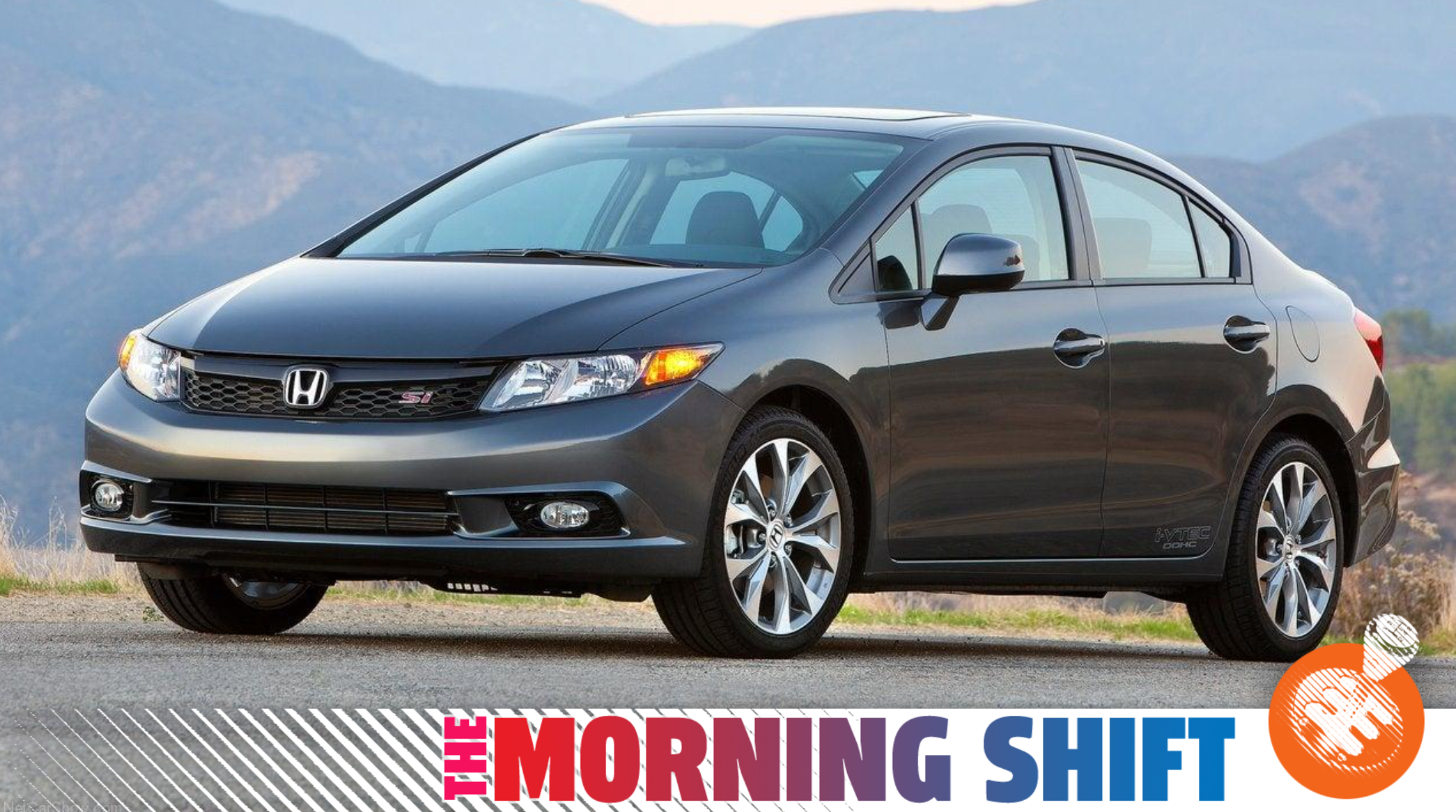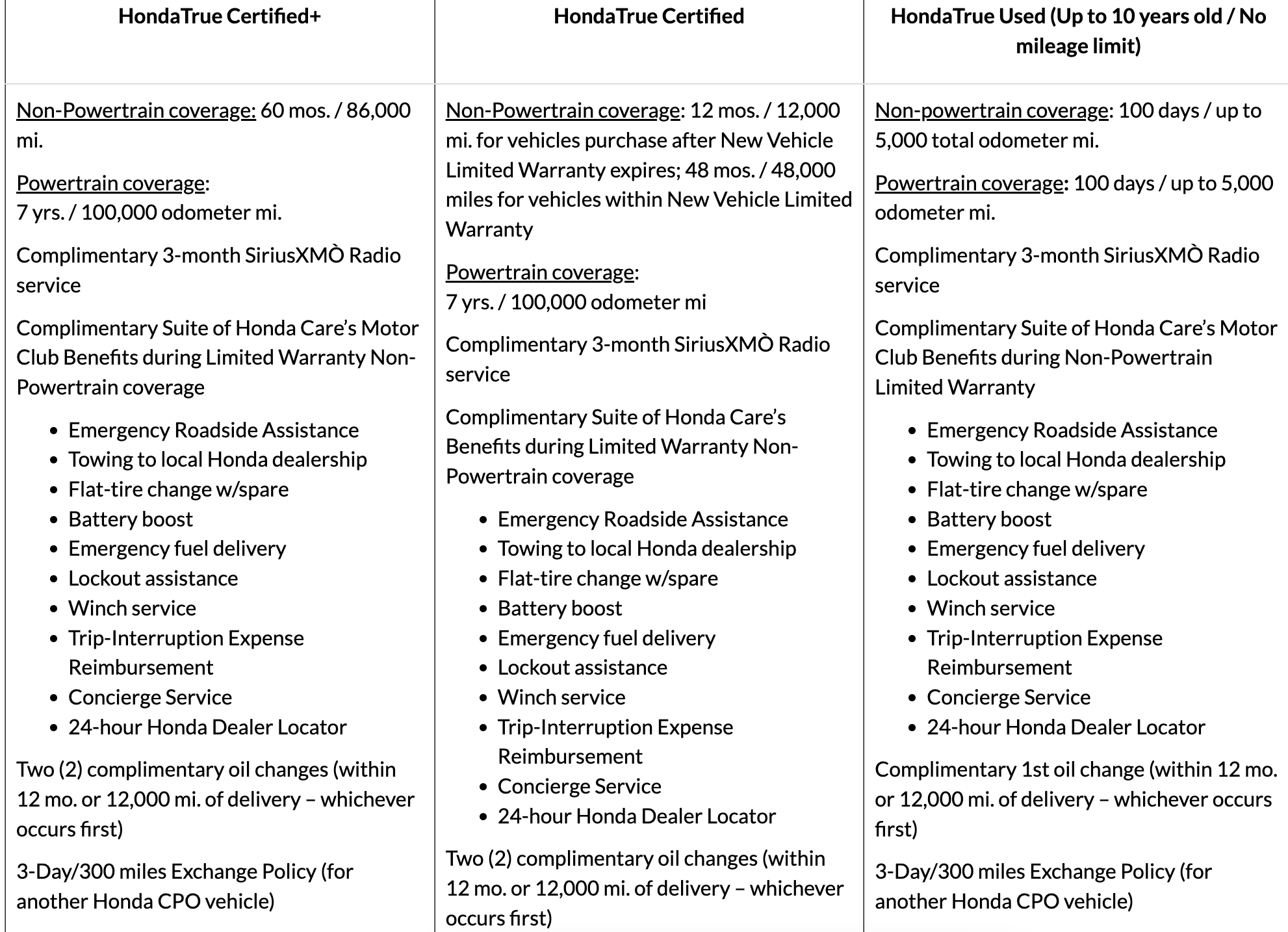Honda Is Now Doing Certified Pre-Owned For Cars That Are A Decade Old
Honda is stretching the definition of certified pre-owned a bit, though.
Honda wants to sell more cars, automakers are down with tougher fuel economy standards, and Faraday Future. All that and more in The Morning Shift for March 31, 2022.
1st Gear: CPO
Honda said Thursday that it will sell certified pre-owned cars that are 10-years-old, with no mileage limitations, which you would be right in thinking sounds like a marketing gimmick. The problem is that "certified pre-owned" in the minds of most buyers usually indicates a certain baseline of quality/warranty/mileage, no matter the manufacturer. That is not what Honda is doing, though, to be fair, they are not pretending it is certified pre-owned, really, instead calling the cars straight-up "used."
Via Automotive News:
The extended programs, called HondaTrue Used and Acura Precision Used, are designed to draw younger, budget-minded shoppers to dealer lots.
"We wanted to make it easy for new buyers to experience our brand," Dan Rodriguez, manager of auto remarketing at American Honda told Automotive News. "We really look at this expansion as a critical way to bring in new customers to our brand — kind of a gateway product,"
The older Honda vehicles, which have no mileage limitations, only receive a 100-day or 5,000-mile manufacturer-backed warranty. That's significantly less than the seven-year/100,000-mile powertrain coverage provided on HondaTrue Certified + and Certified vehicles, which together cover lightly used, current model year vehicles, as well as 2-year to 5-year-old Hondas.
On the Acura side, Precision Used vehicles receive a six-month/7,500-mile warranty.
Acura Precision Certified vehicles, which are up to six years old or 80,000 miles, get the same 7 year/ 100,000-mile powertrain coverage.
A 100-day warranty is more or less useless, unless you have a true lemon, so I don't think this is much different than the status quo, which is just going to a dealership and buying an old car, though Honda PR has my email and is free to correct me if I'm wrong. Here are Honda's CPO programs now, elucidated by Honda:
Note: HondaTrue Certified also includes the 3-day/300 mile exchange thing, but my screen couldn't accommodate it in the screenshot.
At any rate, this is seemingly an effort to better compete with the Carvanas and CarMaxes of the world, or at least put a new polish on old inventory in what is a very tight car market in the U.S.
There is nothing wrong with buying an old Honda with a shitty warranty from a dealer, of course. Just get a pre-purchase inspection first from an independent mechanic, whether it has Honda's dumb new designation or not.
2nd Gear: Automakers Back Tougher Fuel Efficiency Standards
A trade group representing most major automakers said in court papers that it was fine with tougher fuel efficiency standards, according to The Wall Street Journal, because automakers fight these things tooth and nail until they don't and surrender. The court filing came as part of a lawsuit filed by Texas and a baker's dozen number of other states, who are mad about the tougher rules.
The Alliance for Automotive Innovation, the top lobbying group for auto makers and suppliers, petitioned the U.S. Court of Appeals in Washington, D.C., to join the U.S. Environmental Protection Agency in defending the tougher standards against a legal challenge.
Those rules, finalized by the agency in December, set tougher tailpipe emissions and fuel-efficiency standards for auto makers starting with model year 2023.
[...]
Lawyers for the Alliance for Automotive Innovation will argue in favor of the standards.
"The rule is challenging and aggressive," John Bozzella, the group's president, said in a statement. "The country needs a range of supportive policies and other tools in place to accelerate the shift to electric vehicles and to enhance American competitiveness."
The group's members include General Motors Co., Ford Motor Co. and Stellantis NV.
An easy win here would be for automakers to say that they are trying to save the world, but, instead, they say this is about American competitiveness. Sad.
3rd Gear: The Insurance Institute for Highway Safety Says That Seat Belt Reminders In Cars Are Bad
IIHS says that only some Subarus have "good" seat belt reminders, as part of a new test it's doing. The rest are bad. Per Automotive News:
IIHS examined the effectiveness of seat belt alerts and gave grades of "good," "acceptable," "marginal" or "poor," the organization said Thursday. It evaluated the volume, duration and timing of the alerts.
To receive a "good" rating, a vehicle must generate a loud signal and visual alert that last at least 90 seconds when somebody in the front row is unbuckled and at least 30 seconds when a previously buckled second-row seat belt becomes undone.
IIHS said that only the Subaru Ascent and Subaru Forester earned a "good" rating.
The report said 12 of the 26 vehicles received a "poor" rating: the Audi Q3, Buick Encore, Chevrolet Equinox, Chevrolet Traverse, Ford Escape, Ford Explorer, Honda CR-V, Honda HR-V, Honda Pilot, Mitsubishi Eclipse Cross, Volkswagen Atlas and Volvo XC40.
Almost all of those vehicles fell short of the duration or sound level requirements, with alerts that were shorter than eight seconds or that were as little as 1 decibel louder than the ambient noise in the vehicle, IIHS said.
Seat belt usage is one of the true sea changes I've witnessed in my 37 years on this planet. When I was a kid, not wearing your seat belt was a sign that you were some kind of badass. We've all decided since that not doing so is the height of stupidity.
4th Gear: The Securities And Exchange Commission Subpoenas Faraday Future Executives
Faraday Future is, on paper, a car company, though it has never really made a car for production, and for years it's been unclear why it still exists, though it still gets written about by news organizations, because it does still exist. Anyway, Reuters said Thursday that some Faraday executives have been subpoenaed by the SEC, because of course.
The U.S. Securities and Exchange Commission has subpoenaed some members of Faraday Future Intelligent Electric Inc's (FFIE.O) management team as part of a probe into inaccurate statements made to its investors, the EV startup said on Thursday.
An internal review had in February identified certain inaccurate statements and the company cut the base salaries of its Chief Executive Carsten Breitfield and founder Jia Yueting, asking them to report to newly appointed Executive Chairperson Susan Swenson.
The review by a special committee formed in November, however, rejected claims made by a short-seller that called the startup "a new EV scam in town", saying they were not supported by the evidence reviewed.
The startup said on Thursday it would miss the deadline for filing its 2021 annual report due to delays caused by the internal investigation. It had previously delayed the filing of its quarterly report in November.
There was a PR guy I met once at a major manufacturer that will go unnamed who told me that he was going to leave his nice, easy, steady PR job for a PR job with Faraday and then he did and that gig lasted less than a year and that was about the least surprising thing in the world.
5th Gear: Joe Biden Likely To Invoke Korean War-Era Law For Battery Production
There isn't much more to add to this Bloomberg report other than that if you are a shareholder of MP Materials Corp, then you are having a good day.
From Bloomberg:
The White House is discussing adding battery materials to the list of items covered by the 1950 Defense Production Act — the same authority wielded by Harry Truman to make steel for the Korean War and Donald Trump to spur mask production to tackle the coronavirus pandemic — the people said. They asked not to be identified because the details are not yet public.
Shares of MP Materials Corp., the sole U.S. company that produces rare earth metals needed for electric vehicles, and Lithium Americas Corp., which runs a project in Nevada, surged on news of the administration's plans. Piedmont Lithium Inc., which runs a project in North Carolina, erased losses, rising as much as 6 percent.
Adding minerals like lithium, nickel, graphite, cobalt and manganese to the list could help mining companies access $750 million under the Defense Production Act's Title III fund, the people said. The move also could aid recycling of battery materials, one of the people said.
Instead of loans or direct purchases for minerals, the directive would fund production at current operations, productivity and safety upgrades, and feasibility studies, the person said. In addition to EV batteries, the directive also would apply to large-capacity batteries.
The decision to invoke the DPA, which could come as soon as Thursday, isn't final and the timing could shift, according to one of the people.
Reverse: USS Missouri Decommissioned
The Missouri was the site of the Japanese surrender in 1945. It was decommissioned on this day in 1992.
Neutral: How Are You?
A friend told me that she got a crack in her windshield repaired recently and that the shop also suggested that they replace her windshield wipers for $60 to "protect her investment," and I had a good laugh.

